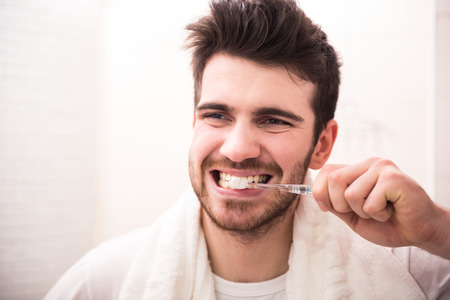Could Your Toothbrush Be Harming You?

At Railroad Dental Associates (RDA), we prioritize your oral health and overall wellness. While your toothbrush is essential for clean teeth, it can also become a haven for bacteria, microbes, and even viruses—potentially contributing to illness. We provide expert guidance on how to keep your toothbrush and your mouth—safe and healthy.
🦠 How Your Toothbrush Becomes Contaminated
-
Habitat for Oral & Environmental Bacteria
Studies show toothbrush bristles can harbor tens of millions of bacteria, including E. coli, Staph, Strep, yeast, and fungal species, which transfer from your mouth and bathroom environment. -
Aerosolized Particles from Flushing
Flushing the toilet creates droplets that may carry fecal bacteria into the air—landing on toothbrushes stored nearby. -
Toothbrush Holder Risks
Nearly two-thirds of bathroom toothbrush holders test positive for mold, yeast, and coliform bacteria; common breeding grounds in damp, dark environments.
Can Contaminated Toothbrushes Make You Ill?
While most healthy individuals can tolerate normal bacterial exposure thanks to natural immunity, certain pathogens pose risks:
-
Oral & Respiratory Infections: Yeast, mold, or Staph species may contribute to infections, particularly in immunocompromised individuals.
-
Gastrointestinal Illnesses: Fecal bacteria like E. coli have been linked to gastrointestinal symptoms and may stem from improper storage .
-
Pathogen Reintroduction: After illness (cold, flu, strep), residual pathogens on your toothbrush may hamper recovery or transmit to others.
6 Essential Tips to Keep Your Toothbrush Germ-Free
1. Rinse & Dry After Each Use
Thoroughly rinse with warm water and shake off excess moisture, which encourages microbial growth.
2. Store Upright & Air-Dry
Allow your toothbrush to dry completely. Avoid closed cases, wet holders, or horizontal placement.
3. Keep It Away from the Toilet
Store brushes at least six feet from the toilet and close the lid before flushing to minimize exposure to aerosolized germs.
4. Don’t Share Brushes or Holders
Never share toothbrushes or store them together; brush heads can cross-contaminate easily.
5. Replace Filters Every 3–4 Months
Frayed bristles are breeding grounds. Replace your brush or electric head every three to four months or sooner if you’re ill or immunocompromised.
6. Optional: Weekly Disinfection
Soak bristles weekly in 3% hydrogen peroxide or antimicrobial mouthwash—most ADA-approved methods reduce bacteria, though not completely.
🌟 Why Railroad Dental Associates Cares
-
Expert Advice, Local Care
As Manassas Park’s trusted dental provider, we offer evidence-based hygiene guidance, tools, and personalized check-ups. -
Cutting‑Edge Hygiene Safeguards
Digital scanning, clean-room protocols, and professional sterilization mirror best practices for home care. -
Supporting Your Continued Oral Health
From cleanings to restorative and cosmetic treatments, we support your wellness journey every step of the way.
Is It Time for a Home Hygiene Check-Up?
If you’re recovering from illness, notice persistent mouth irritation, or simply want to optimize your oral health routine, schedule a visit. We’ll inspect your toothbrush hygiene and provide a fresh home cleaning plan.
📞 Call today: (703) 365‑0230
Or request your appointment online. We’re here to help keep both your mouth—and your tools—truly healthy.

